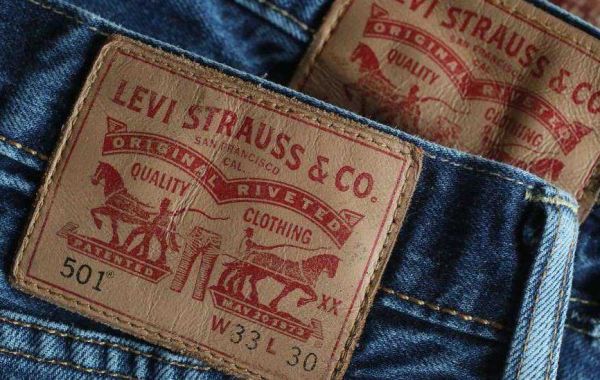In the case of most clothing items, it's generally understood that they should be laundered after a few uses. However, when it comes to jeans, opinions vary widely, and there are even those who advocate for never washing them.
Some attribute this perspective, in part, to the statements made by Levi Strauss CEO Charles Bergh, although he didn't intend for that to be the primary message during an event he addressed. He clarified, "I never actually said not to wash your jeans."
Unique Approach to Denim Care
Bergh maintains his denim cleaning routine, eschewing the use of a washing machine. He explained, "True denim heads, people that really love their denim, will tell you to never put your denim into a washing machine. So that’s what I do."
Denim lovers often say washing jeans will impact their shape and color, while keeping them unwashed will improve their appearance through creases and exposure to the elements. Not washing them is also said to make them last longer as it will prevent the denim’s fibers from wearing down which could lead to holes or rips.
Bergh doesn't merely allow his jeans to accumulate dirt and stains without intervention. He clarified, "If I happen to spill something like curry on my jeans, I'll clean it up, but I'll do so selectively. And in cases where they become excessively soiled, perhaps from strenuous physical activity or perspiration, I'll opt for a shower wash."
To explain further, this entails wearing the jeans while in the shower and applying soap to them as if cleansing one's body, as Bergh described.
Gen Z is rejecting, However, The beauty industry has significantly benefited from this shift, as Gen Z strongly associated makeup and skincare with health, wellness, and self-expression. Moreover, the relatively affordable indulgence of purchasing beauty products, such as lipstick, makes it a convenient splurge compared to, for instance, investing in a pair of designer denim jeans.
Cutting the Eco Impact of Washing Jeans and Other Clothes
According to Bergh, the process of washing jeans significantly contributes to the carbon footprint of clothing. He says that the denim industry consumes a substantial amount of water in its production, but the frequency with which consumers wash their denim products also plays a pivotal role.
In the United States, people tend to wash their jeans after every wear, he pointed out, whereas in other parts of the world, these garments might go into the washing machine after being worn a few times.
This ongoing debate concerning the optimal frequency of washing clothes has expanded beyond jeans in recent years. Controversy surrounding how often individuals launder items like pajamas and bedding, for instance, has sparked discussions on social media, prompting conversations about hygiene practices.
However, hygiene is not the sole factor at play, as Bergh highlights; washing machines consume substantial amounts of water. Some sustainability experts suggest that reducing the frequency of laundry could be environmentally beneficial, particularly because many of our clothes, often made of synthetic materials, release microplastics during washing, contributing to plastic pollution.
Therefore, even if not everyone may be inclined to completely avoid using the washing machine for their jeans, it is worth considering the idea of washing clothes, including denim, less frequently as a step toward environmental responsibility.
Conclusion
The debate over how often to wash jeans reflects changing attitudes toward clothing care. Levi Strauss CEO Charles Bergh's unconventional approach, influenced by denim enthusiasts, challenges the status quo. Beyond denim, the conversation extends to environmental concerns, with reducing laundry frequency emerging as a step toward sustainability and lessening the carbon footprint.








